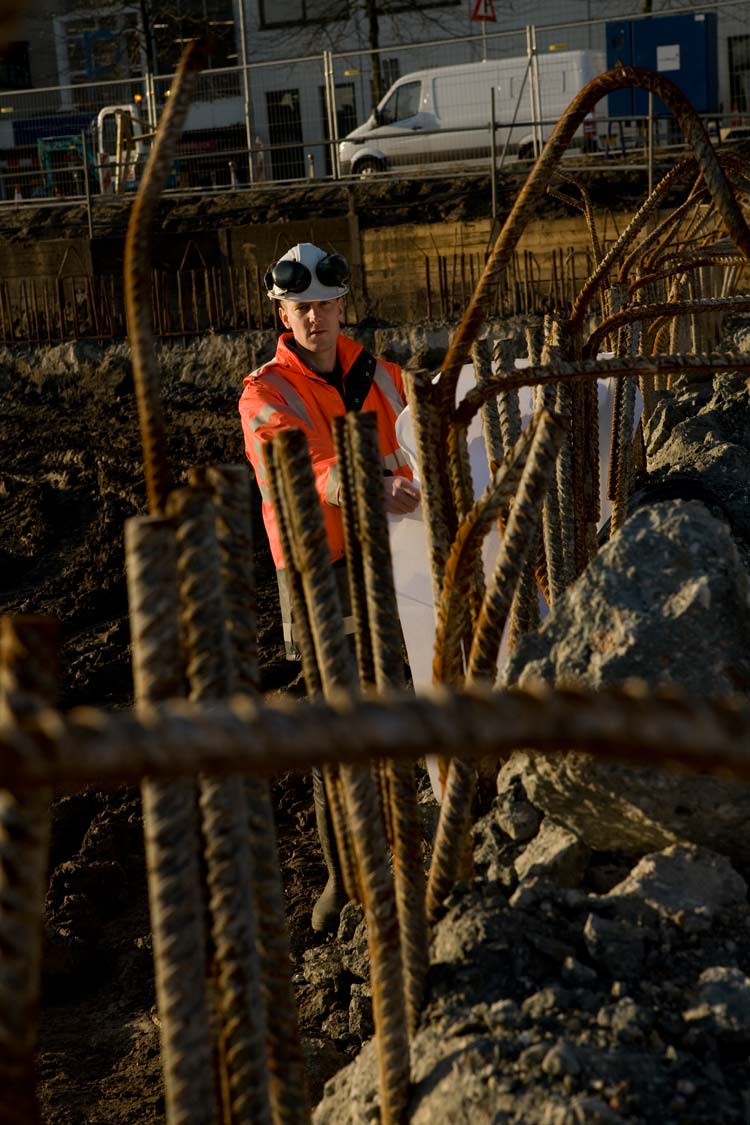WHAT ARE
SPECIAL INSPECTIONS?
The careful examination of:
- Critical building materials and their proper installation
- The erection/modification of structural components and their connections
- The overall, independent review of select field activities for compliance with construction documents
- Mechanical systems, their components and proper installation
Special Inspections were mandated since the 2008 NYC Building Codes, and they are essential as a quality assurance measure on construction projects. A special Inspector monitors and oversees the quality of construction, ensuring that the integrity of the approved construction plans, Building Department Code and relevant industry standards is maintained. Special Inspections are performed by accredited agencies licensed with the NYC Buildings Department. Aside from being the law, proper utilization of such measures provides additional, invaluable quality assurance benefits:
A BRIEF HISTORY OF SPECIAL INSPECTIONS
The need for stricter regulations arose during the 1970’s and early 1980’s as a result of several disastrous structural failures which gained national attention and resulted in many casualties and injuries.
- Hyatt Regency Walkway (Kansas City, Missouri) On July 17th, 1971
- Skyline Plaza Apartment (Fairfax County, Virginia): On March 27th, 1973
- Harbor Cay Condominium (Cocoa Beach, Brevard County, Florida) On March 27th, 1981
The then Chairman of the Investigations and Oversight Subcommittee presented the Report which stated: “For various reasons, the structural engineer of record or the designee is often not present on the jobsite during the construction of principal structural components. The absence of the structural engineer has permitted onsite flaws and changes to go unnoticed and uncorrected”.
The Subcommittee recommended provisions be “Written into the building codes and adopted in public forum which make the onsite presence of the structural engineer mandatory during the construction of structural components”.
Over the years, the Special Inspection requirements were revised and expanded to include new structural components.
WHEN SPECIAL INSPECTIONS ARE REQUIRED
The New York City Department of Buildings requires Special Inspections whenever building construction projects are designed by licensed Architects or Engineers.These inspections are required prior to closing out a project and getting DOB sign off.
In order to successfully obtain a permit for a building construction project, the owner is required to retain a Special Inspection Agency. Inspections fall under the following broad categories:
FRANKLIN & OAK: A LICENSED AND PROFESSIONAL SPECIAL INSPECTION AGENCY
A Special Inspection Agency is an approved inspection agency employing one or more persons who are special inspectors and that met all requirements of 1 RCNY §101-06. Franklin & Oak is a New York City based specialty engineering firm focused on delivering solutions for our clients’ individual construction needs. Franklin & Oak is an NYC DOB licensed ( (#005758) Class 2 Special Inspection Agency, approved to work on all building construction project types in the 5 boroughs.
FRANKLIN & OAK OFFERS THE FULL RANGE OF SPECIAL INSPECTIONS
Special Inspection Category |
2014 Code Section |
|---|---|
1. General Building Construction |
|
| Wall Panels, Curtain Walls, and Veneers | BC 1704.10 |
| Exterior Insulation and Finish Systems (EIFS) | BC 1704.13 |
| Chimneys | BC 1704.26 |
| Flood Zone Compliance | BC 1704.29 |
| Luminous Egress Path Markings | BC 1704.30 |
| Soil Percolation Test – Private On-Site Storm Water Drainage Disposal Systems, and Detention Facilities | BC 1704.21.1.2 |
2. Fire Protection Systems & Fire-Resistant Construction |
|
| Sprayed Fire-resistant Materials | BC 1704.11 |
| Mastic and Intumescent Fire-resistant Coatings | BC 1704.12 |
| Smoke Control Systems | BC 1704.15 |
| Sprinkler Systems | BC 1704.23 |
| Standpipe Systems | BC 1704.24 |
| Fire-resistant Penetrations and Joints | BC 1704.27 |
| Emergency and Standby Power Systems (Generators) | BC 1704.31 |
3. Plumbing & Mechanical Systems |
|
| Mechanical Systems | BC 1704.16 |
| Fuel-Oil Storage and Fuel-Oil Piping Systems | BC 1704.17 |
| Private On-Site Storm Water Disposal Systems and Detention Facilities Installation | BC 1704.21.2 |
| Individual On-Site Private Sewage Disposal Systems Installation | BC 1704.22 |
| Heating Systems | BC 1704.25 |
4. Structural Materials & Construction Operations |
|
| Welding: Structural Steel | BC 1704.3.1 |
| Welding: High-Pressure Steam Piping | BC 1704.18 |
| Welding: High Temperature Hot Water Piping | BC 1704.18 |
| Welding: High-Pressure Gas Piping | BC 1704.19 |
| Welding: Aluminum | BC 1704.28 |
| Structural Steel – Details | BC 1704.3.2 |
| Structural Steel –High-Strength Bolting | BC 1704.3.3 |
| Structural Cold-Formed Steel | BC 1704.3.4 |
| Concrete – Cast-in-Place & Precast | BC 1704.4 |
| Concrete – Prestressed | BC 1704.4 |
| Masonry | BC 1704.5 |
| Wood – Installation of High-Load Diaphragms | BC 1704.6.1 |
| Wood – Installation of Metal-Plate-Connected Trusses | BC 1704.6.2 |
| Wood – Installation of Prefabricated I-Joists | BC 1704.6.3 |
| Subsurface Conditions – Subgrade Inspection | BC 1704.7.1 |
| Subsurface Conditions – Fill Placement & In-Place Density | BC 1704.7.2 BC 1704.7.3 |
| Subsurface Investigations (Borings/Test Pits) | BC 1704.7.4 |
| Deep Foundation Elements | BC 1704.8 |
| Vertical Masonry Foundation Elements | BC 1704.9 |
| Underpinning | BC 1704.20.3 |
| Structural Stability – Existing Buildings | BC 1704.20.1 |
| Mechanical Demolition | BC 1704.20.4 |
| Raising and Moving of a Building | BC 1704.20.5 |
| Excavations – Sheeting, Shoring, and Bracing | BC 1704.20.2 |
| Seismic Isolation Systems | BC 1707.8 |
| Post-installed Anchors | BC 1704.32 |

